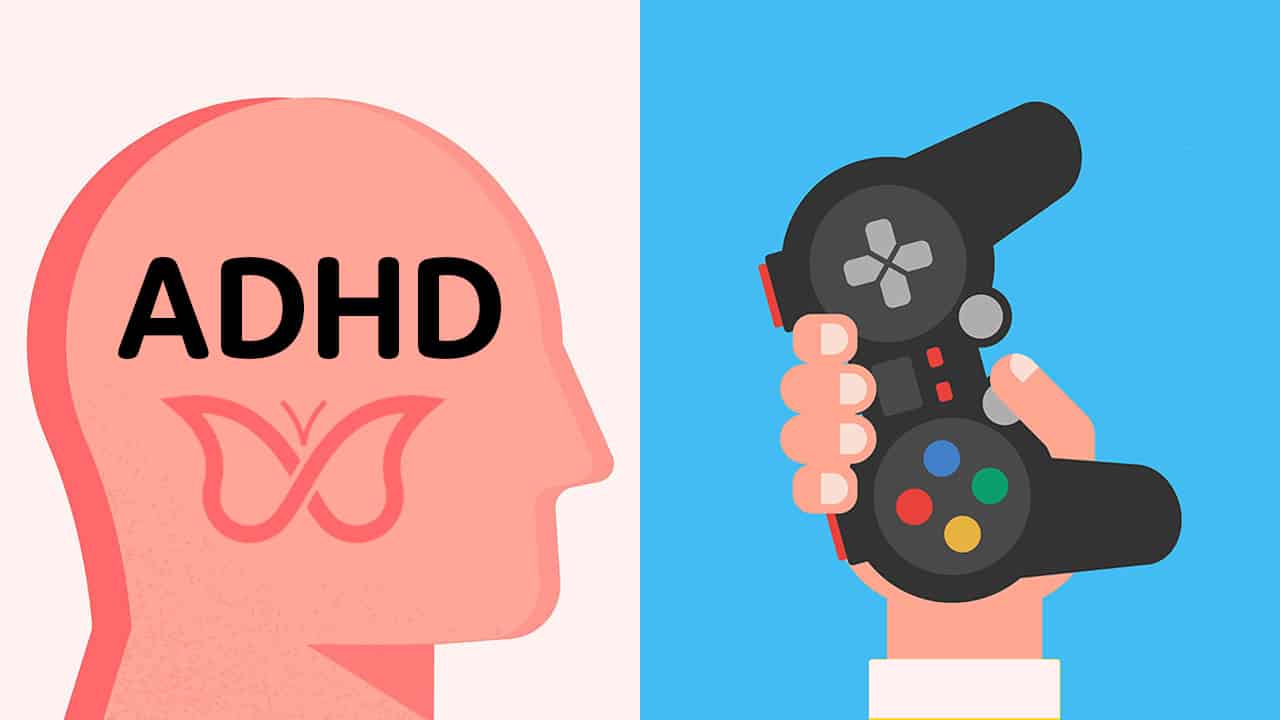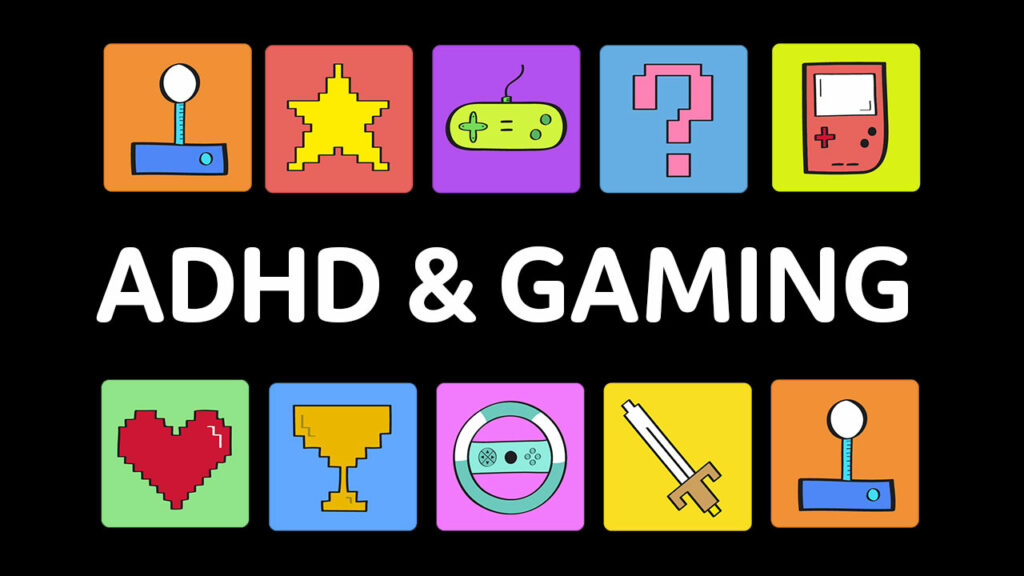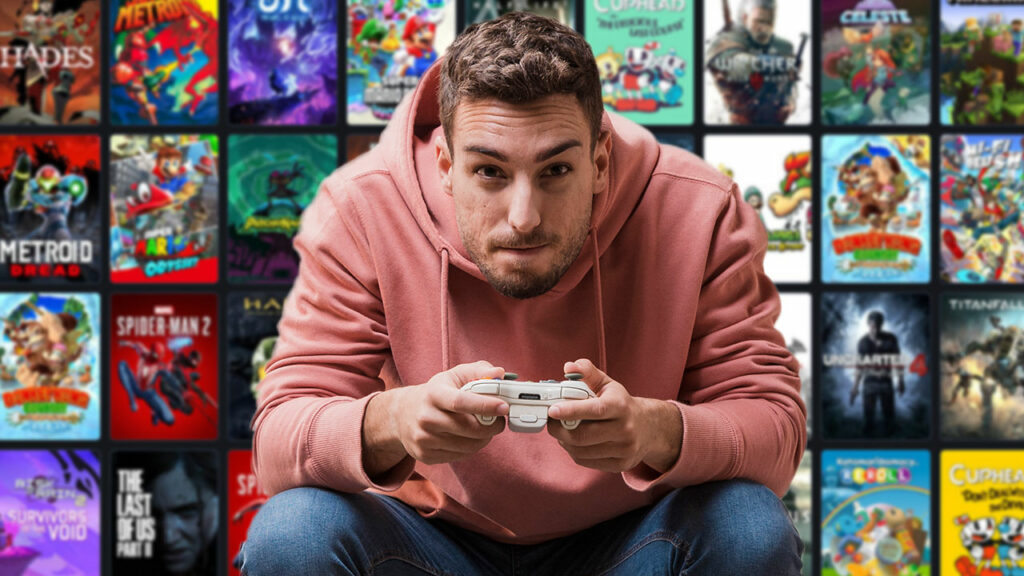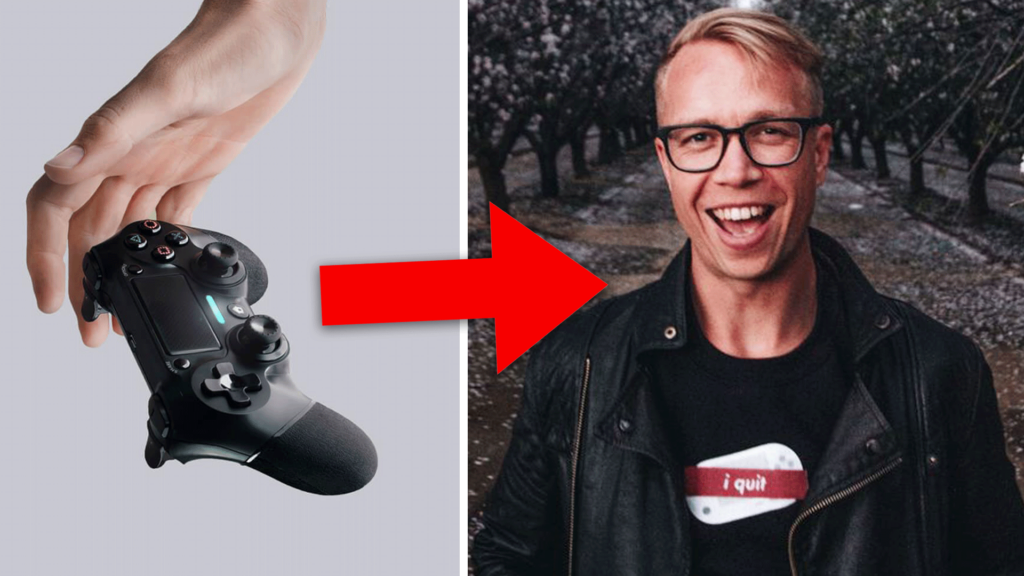
ADHD and Video Games: Good or Bad?
Attention deficit hyperactivity disorder (better known as ADHD) is a mental health condition that’s most commonly found in children and increasingly diagnosed in adults.
As experts in gaming addiction, we’re often asked if there’s link between ADHD and video games. Over the years, we’ve seen many instances of kids with ADHD being drawn to gaming. In this article we look at whether playing video games causes ADHD, or if they can help people with the condition to manage their symptoms.
Why can ADHD kids focus on video games?

Many parents don’t understand why kids with ADHD concentrate on video games but not homework. If we look at the main the symptoms of ADHD – hyperactivity, impulsivity, and difficulty focusing – these are traits that can make kids more drawn to the highly stimulating and distracting nature of gaming. Here are some of the reasons why video games have such a strong pull:
Instant feedback
One of the main reasons why video games hold the attention of kids with ADHD is because they provide instant feedback. A study by the University of Buffalo 1 1. https://www.buffalo.edu/news/releases/2015/07/036.html × found neurotypical kids tend to perform well when asked to do something to the best of their ability, whereas kids with ADHD usually need some sort of immediate gratification or reward.
Gameplay provides instant rewards and this happens via the feedback loop:
- Understanding the situation
- Taking action
- Applying the rules
- Instant feedback, which leads to a better understanding of the situation
As each stage of the feedback loop happens very quickly, it can help gamers with ADHD to stay focused because they immediately learn from their actions.
Motivation
Kids with ADHD often struggle with internal motivation, and gaming provides not only a fun and exciting experience to capture their attention, but external motivation to complete the goals within a game – you need to beat this opponent, get the weapon, and finish the mission. There’s a goal and a structure to work toward.
Pleasure and reward
Studies show that people with ADHD also suffer from low dopamine. Dopamine is a neurotransmitter in the brain responsible for feelings of pleasure and reward. In day-to-day life, having dopamine deficiency may cause people to disengage from activities that require focus, and lose motivation to work toward a future goal.
However, as video games provide frequent stimulation and immediate rewards, they allow kids with ADHD to experience pleasure, despite low levels of dopamine. Discover more about how gaming affects the brain.
Social connection
It can be difficult for kids with ADHD to make and maintain friendships because of their symptoms. Interacting with others online while playing video games can be an easier way to build relationships. However, this can be a double-edged sword. Spending an excessive amount of time gaming can lead to social isolation, which reduces the chance of making real-world connections.
Focus
One of the main symptoms of ADHD is a short attention span. However, people with the condition are capable of hyperfocus when activities are particularly engaging – and this can happen with gaming.
As most video games are visually exciting and highly stimulating, kids are less likely to get distracted. There’s always something happening on the screen which requires them to respond immediately or else they’ll lose. But as the tasks are changing so quickly and gameplay is constantly shifting focus, only short bursts of attention are needed.
Do video games cause ADHD?
Typical symptoms of ADHD – such as impulsive behavior, inability to focus properly, and becoming easily bored – can be easily exploited by video games. However, there’s no proof that excessive gaming actually causes the condition.
Potential causes of ADHD
Although the exact cause of ADHD is unknown, genetics appear to play an important role according to the Centers for Disease Controls and Prevention. The following factors may also be involved, but the evidence isn’t strong enough to conclude they may be the primary causes of ADHD:
- Brain injury
- Exposure to toxins, e.g., high levels of lead during pregnancy or at a young age
- Smoking and alcohol use during pregnancy
- Premature delivery
- Low birth weight
ADHD and video game addiction
Although there’s no evidence to suggest that playing video games causes ADHD, research has found a link between ADHD and gaming disorder. The study concluded that people with the condition have a greater chance of developing video game addiction, and those with the most extreme ADHD symptoms are even more likely to become addicted. The researchers suggested that gamers with ADHD may benefit from being informed about the potential risk of problematic play.
Too much screen time can worsen symptoms
As well as the risk of video game addiction, there are more potential harms of too much screen time. Kids start to neglect other things at an important stage of their development, such as school, sport, hobbies, family time and hanging out with friends in person. So, what is the best lifestyle for people with ADHD?
These screen time guidelines can help you work out a healthy balance for your family, and non-screen activities are also a good way to help you achieve it. Although limiting screen time and encouraging offline interests is important for all kids, it’s particularly important for those with ADHD. Sleep deprivation due to hours spent gaming can make their symptoms worse. They can find it even more difficult to concentrate and complete tasks, and become more easily distracted.
Do video games help with ADHD?

While there’s no evidence to suggest that gaming can cause ADHD, research has shown the benefits of playing video games and their potential as therapy for ADHD.
Video games can improve attention
In a study by The Lancet 2 2. https://www.thelancet.com/journals/landig/article/PIIS2589-7500(20)30017-0/fulltext × , a sample of 8 to 12-year-olds with ADHD used a video game-like interface for 25 minutes per day, five days a week over a four-week period. The results showed an improvement on the Test of Variables of Attention (TOVA), a neuropsychological assessment that measures a person’s attention and focus. This was one of several studies commissioned by the digital medicine company, Akili Interactive, that paved the way for EndeavorRx (AKL-T01) to be approved by the US Food and Drug Administration (FDA) in 2020 as a treatment tool for kids with ADHD.
How is EndeavorRx different to other video games?
EndeavorRx is a video game for 8 to 17-year-olds with attentive or combined-type ADHD, who have an issue with staying focused 3 3. https://www.endeavorrx.com/ × . It’s designed to be used in conjunction with medication or behavioral therapy, rather than as a stand-alone treatment. The big difference between EndeavorRx and other video games is that it adapts to the player’s cognitive function, allowing them to progress to a level that challenges but doesn’t over challenge them. For example, if a player makes too many errors, the speed slows down but if they’re managing to avoid obstacles, the game speeds up. This means that every player has a positive experience of the game, regardless of their ability.
How gameplay improves cognitive function
Each player’s avatar is a space cadet who travels over different worlds and landscapes. They must take part in missions along the way, while saving aliens from extinction. This includes the following cognitive tasks:
- Navigating around obstacles, which requires constant attention
- Completing several tasks at once so they can’t just focus on one at a time
- Remembering which type of alien to capture, which aids working memory
The EndeavorRx Insight app allows parents to follow their child’s progress. Feedback is positive: 73% of kids reported an improvement in their attention span and 68% of parents have seen improvements in ADHD-related issues after two months of treatment.
When you are considering whether or not to play video games as someone with ADHD, it’s worth consider the best games for ADHD.
What people with ADHD wish you knew
Despite video games sometimes getting a bad press, especially now there’s evidence that gamers with ADHD may be at greater risk of addiction, they can help young people with the disorder to develop important life skills, including:
- Strategy and problem-solving
- Visual-spatial awareness
- Focus and concentration
- Hand-eye coordination
- Prioritizing and sequencing
- Teamwork and collaboration
- Planning, organization, and time management
We know from speaking to kids with ADHD that they wished their families would acknowledge the positive as well as the negative aspects of video games. Our ADHD guide for parents is packed with helpful information and insights.
Need help?

At Game Quitters, we have lived experience of ADHD and video games. We know what it feels like to be a mom with ADHD – or a dad or teen – who can’t stop gaming. Our founder, Cam Adair, has previously suffered from gaming addiction with ADHD. We understand the technology struggles that many people face, which helps us to work with gamers and families.
If you or someone you care about have ADHD and are gaming compulsively, we can help. Take the first step today and apply for a Gameplan strategy call. On this call, we’ll see if you’re a good fit for our coaching program. We have a limited places available and we’re unable to accept all applicants.
Alternatively, you can join our community forum to connect with other gamers or our parent support group on Facebook.
